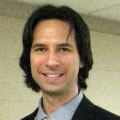Implementing CALL
After watching the recorded presentations, join these authors for a live panel discussion on December 3, 2020 at 10:45 am – 11:15 am (CST). Moderator: Mahdi Duris
| Presenter | Abstract |
|---|---|
 Lea Johannsen English Language Learner Resource Coordinator | Applying CALL in the Ivy College of Business During my time in the ALT program here at ISU, we often spoke of the far-reaching applications of CALL and ESL instruction. Graduates from the program pursued professional opportunities across the globe. For many of us, the prospect of teaching English abroad was a familiar career consideration. What I didn't expect was that I would end up applying my skills within eyeshot of Ross Hall, in the Gerdin Business Building. In this presentation, I will discuss the projects I undertake in my position and how they relate to the skills I acquired in the ALT program. |
 Erik Voss Lecturer | Flipped Academic English Language Learning at an American University Flipped Learning is increasing in popularity as a methodology for language teaching. Originating in the fields of science, technology, engineering, and mathematics (STEM), a flipped learning approach is being adopted by English language teachers (Kostka & Marshall, 2017) at all levels of instruction including in university settings (Voss & Kostka, 2019). This methodology is characterized by shifting instruction to a time outside of a traditional classroom environment and presenting content to students through instructor-prepared materials, often as instructional videos. Students engage in activities such as watching the videos and taking notes outside of class that requires them to use skills that are lower on Bloom's taxonomy, such as knowledge and comprehension (Brinks Lockwood, 2014). The concepts introduced through direct instruction before class are then applied during class time as activities that strengthen the knowledge and skills through practice and feedback from the instructor and peers. These activities during class time require students to use skills that are higher on Bloom's taxonomy, such as application, analysis, evaluation, and creation (Brinks Lockwood, 2018). As a result of 'flipping' instruction and homework, instructors have more time to help students as they engage in activities that are more difficult and promote deeper learning (Bergmann & Sams, 2014), which is not possible when students work alone outside of class. In this presentation I will provide an overview of Flipped Learning in an academic English language pathway program at a US university. I will also highlight technology used to implement the methodology and discuss how teaching English using Flipped Learning can occur in-person and in remote learning environments. |
 Monica (Richards) Ghosh Communications Specialist | Self-Editing in L2 English Research Writing: Important AND Possible Many L2 English academics face a marked disadvantage in publishing their research in top journals, in obtaining grant funding, etc. Often, this is not because their research quality is any less than that of their L1 English peers but instead because nonstandard English phrasing and grammar hinder their clear and convincing academic communication (Di Bitetti & Ferreras, 2017; Huttner-Koros, 2015; Meneghini & Packer, 2007; Ramírez-Castañeda, 2020). Exceptions exist, of course, but rarely is graduate school in an L1 English context—even that including focused writing training (e.g., Iowa State's "English 101D: Academic English II for Graduate Students")—adequate for enabling the average L2 English STEM PhD graduate to be competitive in research writing with L1 English colleagues. As a result, successful L2 English academics frequently spend hundreds of dollars annually on professional editing services. |